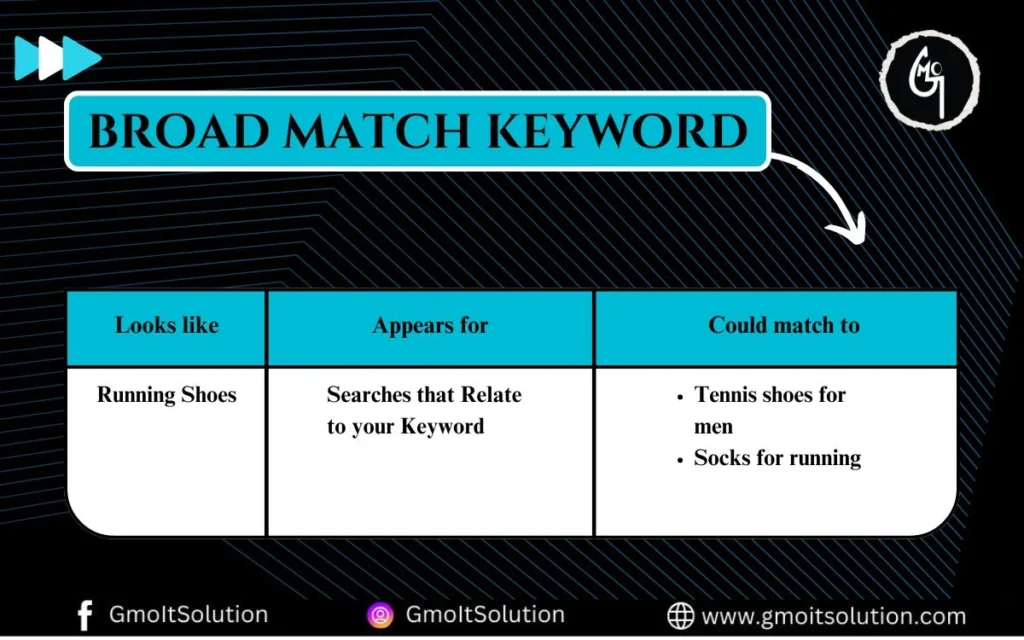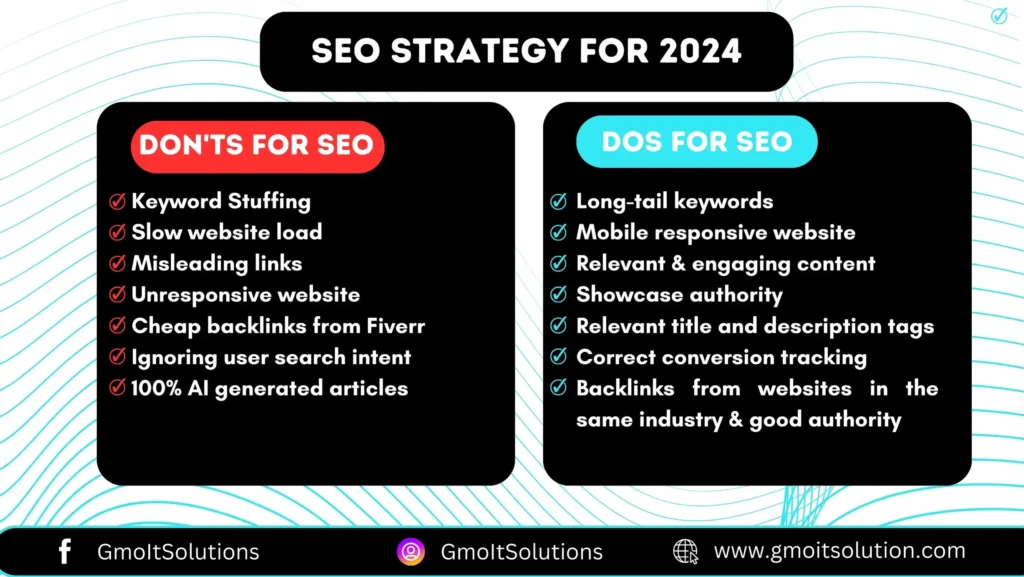Broad Match Keywords
It the important to understand that all of the keyword match kinds before dropping into the world of digital marketing and Google Ads. Broad-match keywords are some of the most flexible keywords, and if you use them correctly it can make a big difference in your ads’ performance.
We will discuss broad match keywords in this blog, including what broad keywords are why they are important, and how they are different from matching phrases and exact match keywords. Also, you will discover how broad-match keywords are good for your strategy and what benefits they give you.
- Broad Match Keywords
- What Broad Match Keywords is?
- Why Are Broad Match Keywords So Important?
- Benefits of Using Broad Match Keywords
- Broad Match Keywords Example
- Broad Match vs. Phrase Match vs. Exact Match
- Should I Use Broad Match Keywords?
- Broad Match Keywords On or Off?
- What Value Is Gained by Utilizing Broad Match Keywords?
- Google Broad Match: Is It Worth It?
- Faq’s
What Broad Match Keywords is?
Google Ads’ basic keyword match option is broad match. Simply, they let your advertisement show for searches if they are search-selected words, even if the search you made doesn’t exactly match the keyword you entered. Substitutes, mistakes in spelling, and searches with similar objectives may also fall under this category.
As an example, if “women’s shoes” is your broad match keyword, your advertisement can also show up for searches like “buy high heels” or “ladies’ footwear.” This broad match helps in reaching a broad audience and new customers who may speak differently but are still interested in what are you offering.
Why Are Broad Match Keywords So Important?
Broad-match keywords are very important Because they help you reach more customers. By using a broad search strategy, the ads may draw in users who are looking for keywords you haven’t thought of. This is very helpful for increasing your visibility and marketing a new product or campaign.
Broad match keywords also help advertisers with finding information about the terms that lead to clicks and purchases. After that, you may improve your approach by focusing on the keywords that produce the most results.
Benefits of Using Broad Match Keywords
Using broad match keywords provides the advantage of allowing you to find fresh search terms that you have never before targeted. Improved impressions, clicks, and sales may result from this. They are also more affordable than phrase match or exact match keywords, which gives ads an affordable option.
Ability is an additional benefit. Your ad will show for a broader variety of keywords when you choose a broad match, which increases the likelihood that possible buyers will see it even if they use slightly different search terms.
Broad Match Keywords Example
Imagine you are in charge of a gym marketing campaign. You choose to use “gym membership” as your broad match keyword. If you use a broad match, your advertisement can show up when someone looks for “local gym,” “fitness center,” or even “best places to exercise.”
This broad targeting helps ensure that you’re not missing out on potential customers who might be using different terminology but are still interested in what you offer.
Broad Match vs. Phrase Match vs. Exact Match
The three main opportunities for matching keywords are broad match, phrase match, and exact match. This is a quick contrast:
- Broad Match: covers many related searches, including mistakes in spelling and duplicates. While it is less exact, it is the most flexible.
- Phrase Match: shows your advertisement when the exact wording you’ve selected shows up in the search result. It provides a balance between precision and broad reach.
- Exact Match: Only when the search query exactly matches your term does your advertisement show. Though your possible audience is limited, it is the most exact.
When is it OK to use broad match keywords? A broad match is an excellent choice if you want to increase your visibility and are okay with your advertisements showing for a range of relevant keywords. But if you need more control over the searches that show your advertisements, you might choose to use a phrase or an exact match.
Should I Use Broad Match Keywords?
The reaction is based on your specific advertising goals. For businesses trying to grow their customer base and increase their visibility, broad-match keywords are perfect. However, phrase match or exact match can be more successful if your ad targets intent searches or a very particular audience.
If you do choose to use a broad match, you must keep a careful eye on your campaign. To make sure that the correct people see your ads and to filter out unnecessary searches, be ready to use negative keywords.
Broad Match Keywords On or Off?
It may be unclear to some advertisers when to turn on or off broad match keywords. The choice is based on the goals of your campaign. It can be helpful to have broad match keywords set if you are interested in running trials and get data about what people are searching for when they’re seeking for goods or services similar to yours.
But, it could be a good idea to move to a more focused match type, such as a phrase or an exact match, if you find that a broad match is producing a great deal of useless clicks.
What Value Is Gained by Utilizing Broad Match Keywords?
The opportunity to find new opportunities is what makes broad match keywords important. You can find fresh alternatives to keywords and buyer intentions with broad matches that you may not have seen before. This can be especially useful if you’re looking to expand your client base or break into a new market.
Google Broad Match: Is It Worth It?
When used carefully, Google broad match keywords can be a very useful tool. Broad matches can provide a big return on investment provided that you can keep an eye on things and adjust your campaign as necessary. The secret is to use negative keywords to enhance targeting, review performance data regularly, and change your keyword strategy.




Pingback: Exact Match Keywords: Targeted SEO & PPC Strategies
Pingback: Mastering Keyword Research Strategies for Effective SEO